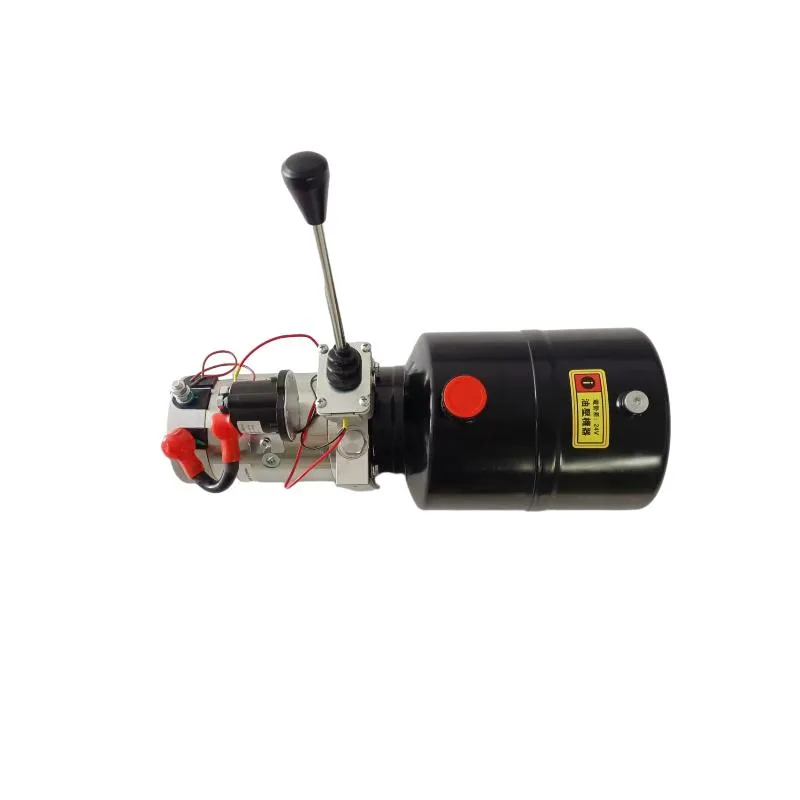Nov . 04, 2024 19:01 Back to list
Hydraulic Power Units Powered by Engines for Industrial Applications
The Engine Driven Hydraulic Power Unit Meeting Industrial Demands
In the realm of industrial applications, the demand for efficient, reliable, and flexible power sources has never been greater. One such solution that has gained immense popularity is the engine-driven hydraulic power unit (HPU). These units serve as a vital component in a variety of sectors including construction, agriculture, marine, and manufacturing. Understanding the design, function, and advantages of engine-driven hydraulic power units is essential for industries looking to optimize their operations.
What is an Engine Driven Hydraulic Power Unit?
At its core, an engine-driven hydraulic power unit is a self-contained system that converts mechanical energy from an internal combustion engine into hydraulic energy. This is achieved through the use of hydraulic fluid that is pressurized by a pump, enabling the operation of hydraulic systems and machinery. These units are particularly valued for their mobility and independence from traditional power sources, making them ideal for remote locations where electrical supply might be limited.
Design and Components
An engine-driven hydraulic power unit typically consists of several key components
1. Engine The heart of the HPU, which can be powered by diesel, gasoline, or alternative fuels. The choice of engine depends on the application's requirements and environmental considerations.
2. Hydraulic Pump Driven by the engine, this component is responsible for creating the hydraulic pressure needed to operate various hydraulic systems. Options vary from gear pumps to piston pumps, depending on the specific needs of the job.
3. Hydraulic Reservoir This tank stores the hydraulic fluid, ensuring a continuous supply to the pump and allowing for proper cooling and filtration.
4. Control Valves These valves regulate the flow and pressure of the hydraulic fluid, enabling precise control of hydraulic actuators such as cylinders and motors.
5. Cooling System To prevent the hydraulic fluid from overheating during operation, many units are equipped with cooling systems to maintain optimal temperatures.
engine driven hydraulic power unit factory

Advantages of Using Engine Driven HPUs
The benefits of utilizing engine-driven hydraulic power units are numerous, making them suitable for a wide range of applications
1. Portability Many industries operate in environments where electrical power is either unavailable or impractical. Engine-driven HPUs can be easily transported, allowing for hydraulic power wherever it is needed.
2. Flexibility These units can be adapted to various tasks, from powering hydraulic tools to facilitating complex machinery operation. Their modular design allows customization to fit specific project needs.
3. Independence An engine-driven HPU provides a self-sufficient power source, eliminating reliance on grid electricity. This can be particularly advantageous in areas prone to outages or in remote job sites.
4. Cost-Effectiveness In many cases, utilizing an engine-driven hydraulic power unit can reduce operational costs compared to traditional power sources, especially in terms of fuel efficiency and maintenance.
5. High Performance Engine-driven HPUs are capable of delivering significant hydraulic power, making them suitable for heavy-duty applications requiring substantial force and speed.
Applications Across Industries
The versatility of engine-driven hydraulic power units translates into a wide range of applications. In construction, HPUs power excavators, cranes, and other hydraulic machinery. In agriculture, they assist in running equipment such as seeders and harvesters. The marine industry relies on them for deck operations, while manufacturing processes benefit from their ability to operate machinery such as presses and lifts.
Conclusion
As industries continue to evolve, the importance of reliable hydraulic power solutions becomes increasingly clear. Engine-driven hydraulic power units offer an effective means of meeting these demands through their mobility, adaptability, and independence from traditional power sources. By investing in these units, businesses can enhance their operational efficiency, reduce costs, and ensure that they have the necessary power to tackle even the most challenging tasks. The future of hydraulic power is not just about energy; it’s about flexibility, reliability, and performance, all of which engine-driven HPUs provide in abundance.
-
Fork Lift Power Units - Hebei Shenghan | Efficiency, Reliability
NewsJul.13,2025
-
1.5-Ton Turbocharged Cylinder-Hebei Shenghan|Hydraulic Solution,Energy Efficiency
NewsJul.13,2025
-
Auto Hoist Power Units-Hebei Shenghan|Efficiency&Industrial Lifting
NewsJul.13,2025
-
Double Acting Power Units-Hebei Shenghan|Hydraulic Solutions,Industrial Efficiency
NewsJul.13,2025
-
1.5 Ton Lifting Cylinder 70/82-40-290-535 - High-Performance Hydraulic Solution | Hebei Shenghan
NewsJul.13,2025
-
Fork Lift Power Units - Hebei Shenghan | Efficiency&Reliability
NewsJul.13,2025
